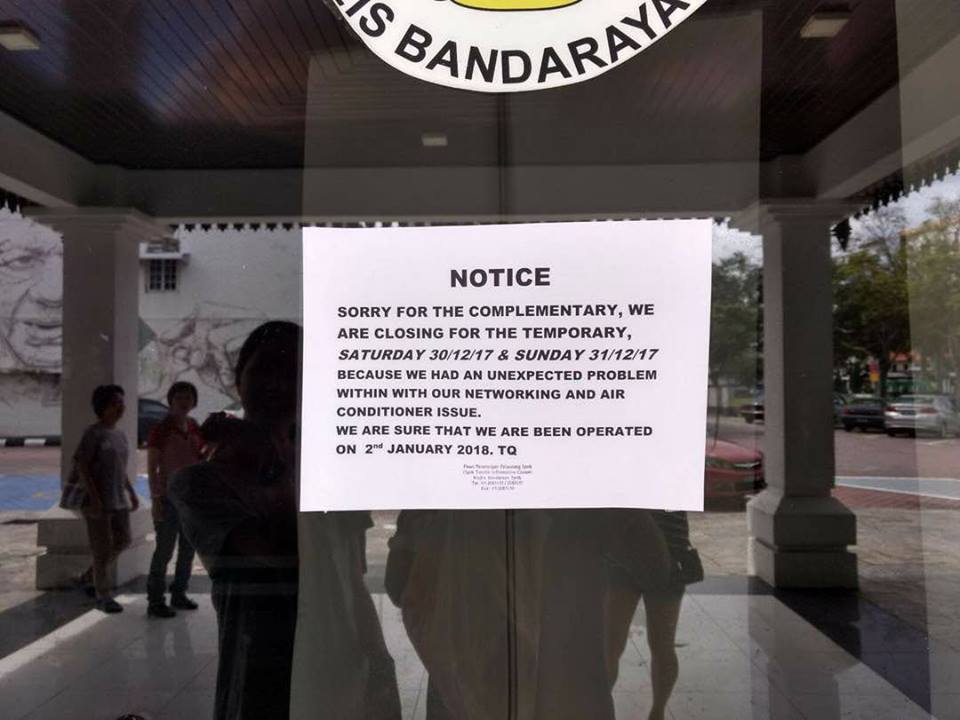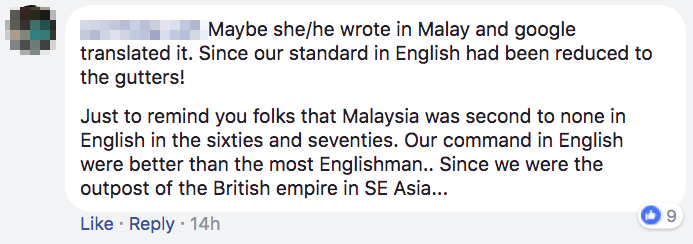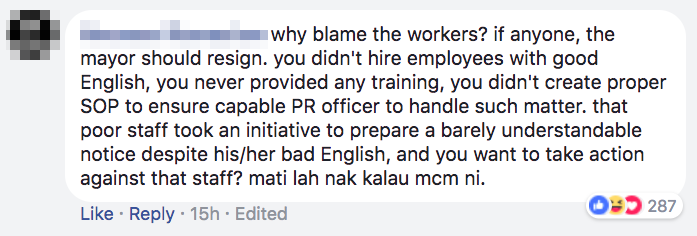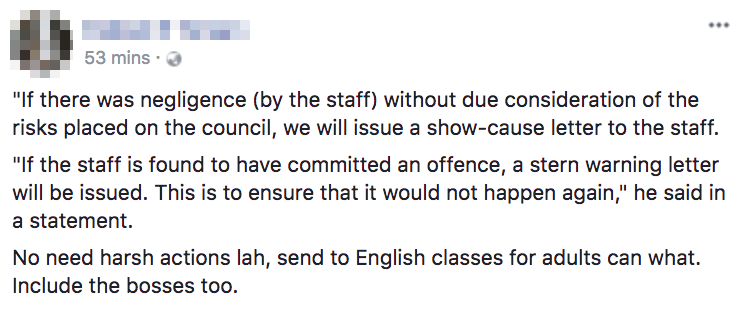This Public Notice By The Ipoh City Council Is Going Viral For All The Wrong Reasons
Another day, another public notice with bad English.
Yikes, what a way to start the new year. A public notice pasted onto the glass doors of the Ipoh Tourism Information Centre (ITIC) has gone viral on social media after it was found to be riddled with grammatical errors.
The notice reads:
"Sorry for the complementary, we are closing for the temporary, Saturday 30/12/17 & Sunday 31/12/17 because we had an unexpected problem within our networking and air conditioner issue.
We are sure that we are been operated on 2nd January 2018."
The error-filled notice has once again put the spotlight on poor English proficiency among employees in public service, with many lamenting the standard of English in the country
According to Ipoh Mayor Zamri Man, the Ipoh City Council found that the notice was produced by an employee working at the centre, adding that the employee will be called up to explain how the error-filled notice managed to see the light of day
In a statement issued via WhatsApp, the mayor said, "We will ask for a detailed explanation of how this could happen.
If we find that there was a clear incidence of carelessness, and that the mistake was made without thinking of the consequences to the council, we will take action."
The mayor further elaborated that the council would be issuing a stern warning to the employee responsible for producing the public notice
"We will also advise this individual to ensure that this mistake does not happen again," he said, adding that the council will also issue a show-cause letter to the employee so their explanation can be put on record.
However, netizens pointed out that the employee should not be the only person to be punished for the mistake. Rather, their superiors should also be held responsible for not vetting the notice before it was put up.
Some also suggested that instead of punishing the employee responsible for the error-filled notice, they should be sent for English classes along with their colleagues to improve their command of the language








